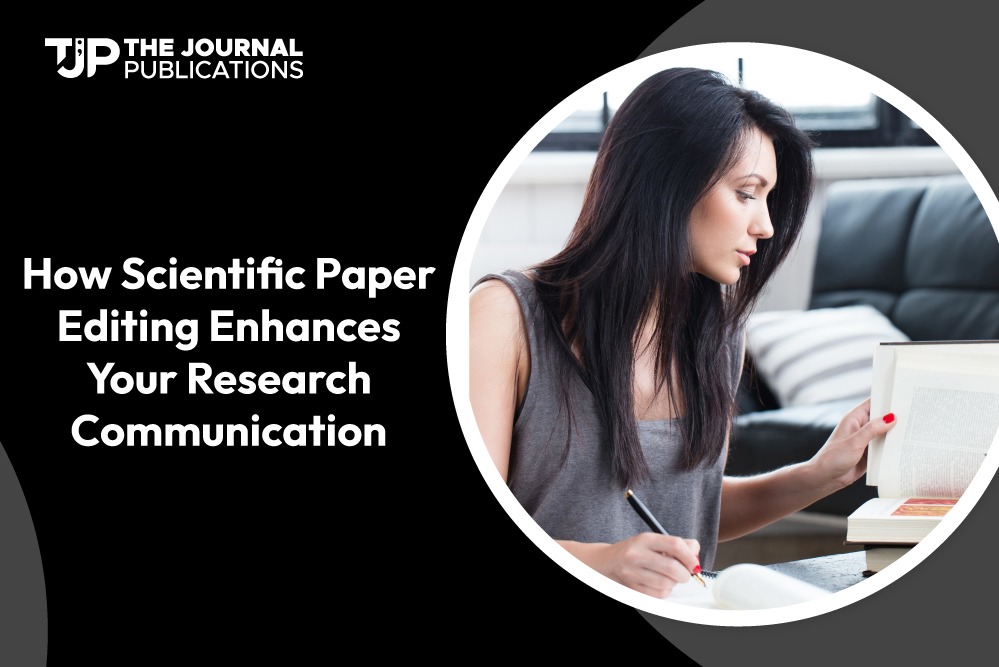Table of Content
- Intro
- What is scientific paper editing?
- Key benefits of professional scientific editing services for researchers
- The impact of scientific editing on research publication rates
- How to choose the right scientific editing service?
- Closing
- FAQs
Intro
Imagine being a top student in college. Sounds fun? Well, it is exciting for any scholar to achieve good grades in their academic life. However, what if we tell you that a minor inconvenience can ruin your complete topper reputation? Thesis submission is crucial for university or college students. However, due to grammar issues or quality issues, you might face rejection. But wait. You can get rid of every problem by just investing in scientific paper editing. That’s right. Trust us. Your research-related problem will vanish in the blink of an eye.
What is Scientific Paper Editing?
Stuck with your scientific research project? Must be scared of not meeting the deadline. But wait. Do you know the importance of clear, accurate, and concise communication? If not, then you really shout. However, you don’t have to panic, as with a little scientific paper editing help, you can get your ideal result.
What is scientific editing? Why is it so crucial in scientific and academic research? Well, it is a critical process that aims to improve the quality, accuracy, clarity, and overall effectiveness of manuscripts. So, this plays a major role in ensuring that the paper meets rigorous standards of academic publishing.
Ever wondered what a scientific editor does? Well, they are like the magicians of research. They meticulously comb through the paper to clarify unclear phrases. So that it can enhance the flow of information and correct scientific inaccuracies. Now you must know that their ultimate goal is to refine your paper and present it clearly and persuasively.
Key Benefits of Professional Scientific Editing Services for Researchers
Want to know the benefits of a professional scientific editing service? Well, its benefits are far beyond the surface-level corrections of punctuation and grammar. Scientific editing can play a significant role in getting research published faster and in higher-impact journals. However, it’s important to note that strong research with robust methodology is still the foundation for publication success.
Moreover, hiring a professional scientific editor can boost the impact and reach of your paper. For instance, here are some of the most highlighted benefits of professional scientific editing services:
- Precision and clarity
- Enhanced credibility
- Increased publication success
- Time efficiency
- Stress reduction
- Enhance structure in scientific papers
- Streamlining content for better understanding
- Organize the impact
- Highlight key points
- Consistency in style and format
- Navigate the peer review process with ease
- Anticipate reviewer concerns
- Strength argumentation
- Improve response to feedback
- Speed up publication
- Address common errors in scientific manuscripts
- Typographical and grammatical corrections
- Data consistency checks
- Reference verification
- Logical flow and coherence
- Eliminate redundancy
The Impact of Scientific Editing on Research Publication Rates
Knowing so much about scientific editing can be quite a game-changer when it comes to research and its submission. Well, it can have a positive impact on research publication rates. So, have you ever considered getting scientific paper editing help? If not, then this guide must have convinced you enough to consider it. Well, who doesn’t want their hard work to pay off?
Did you know the editors ensure clarity, proper grammar, and adherence to journal guidelines? That’s right. This is the key to success. Well-written papers are more likely to pass initial editorial screening and be sent for peer review. Your editor can help you refine the structure, flow, and overall presentation of the research.
It must be exciting, right? So, now you know that this makes the findings more compelling and easier for reviewers to understand, potentially leading to fewer revisions and faster publication. Moreover, editors with subject-matter expertise can offer valuable insights into methodology, data analysis, and conclusions.
These qualities of publication can strengthen the research and address potential weaknesses that reviewers might raise. Moreover, editors ensure the manuscript aligns with the specific formatting and style requirements of the target journal. This reduces the risk of rejection due to technical formatting errors.
How to Choose the Right Scientific Editing Service
Investing in a scientific paper editing service is one thing, but choosing a credible one is even more essential. The wrong scientific editing service can not only delay your work but also ruin your research efforts and lead you toward rejection. So, it’s better to choose an ideal scientific editing service.
Closing
Scientific paper editing is an invaluable investment for researchers. It can significantly enhance your research communication and publication success. Now you can confidently present your research findings to the world and maximize the impact of your hard work. So, don’t underestimate the power of professional editing, as it can be the key to unlocking the full potential of your research.
FAQs
What is scientific paper editing?
Scientific paper editing is a service that improves the quality, accuracy, clarity, and overall effectiveness of your research manuscript.
Who can benefit from scientific paper editing?
Researchers of all levels can benefit from scientific paper editing, from students writing their first thesis to experienced researchers aiming to publish in high-impact journals.
Do scientific editors provide feedback on the content of my research?
Some scientific editing services offer basic feedback on the content and structure of your research. Editors with subject-matter expertise can provide valuable insights on methodology, data analysis, and conclusions.
How do I choose the right scientific editing service?
Well, you need to look for a service with editors who have expertise in your field and experience with your target journal.





